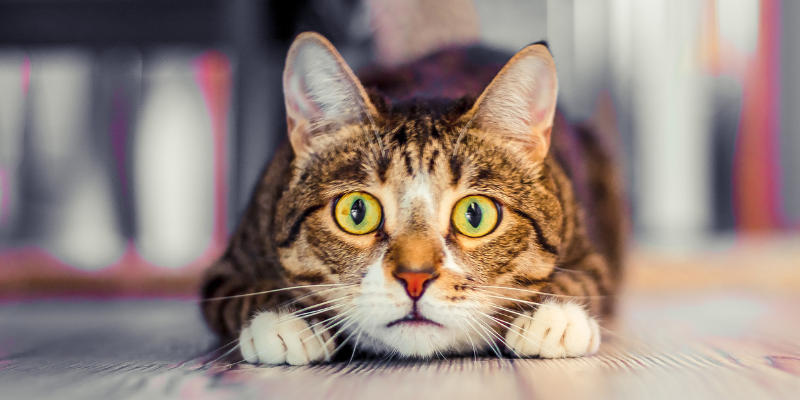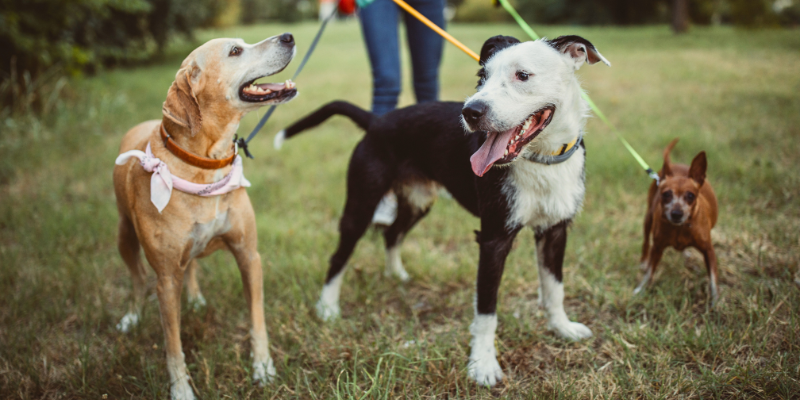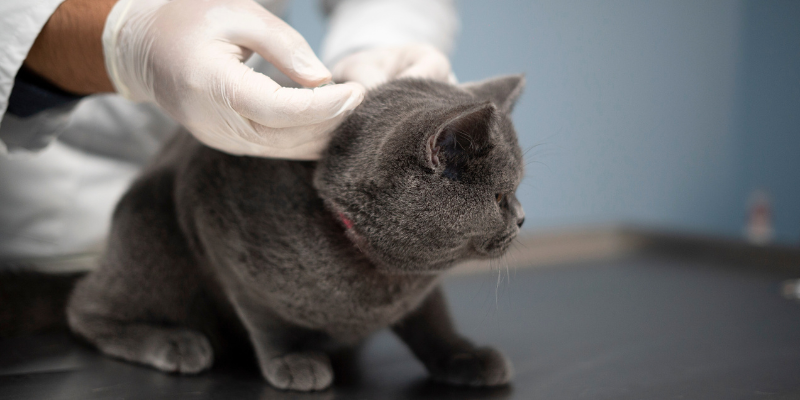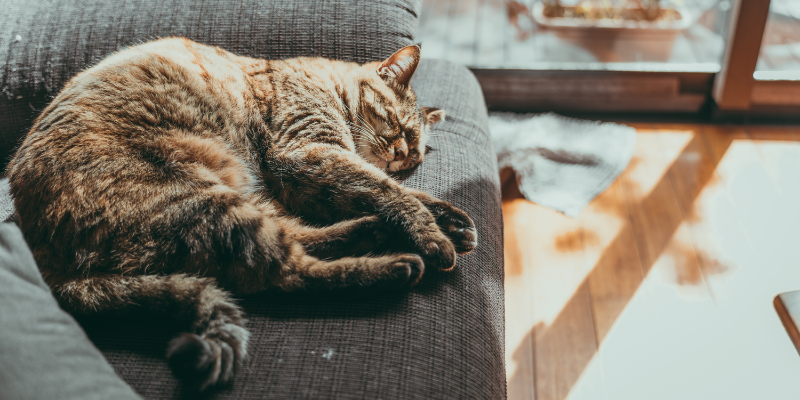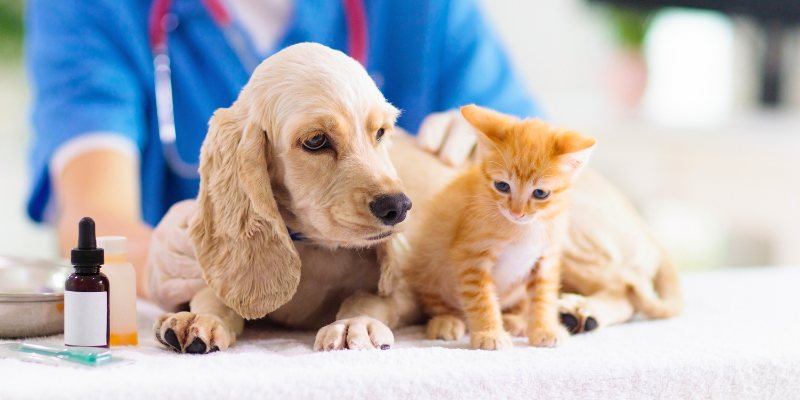Increased heart rate. Increased breathing rate. Dilated pupils. Raised blood pressure. What’s going on?
These physiological responses can be triggered by anxiety, which is the anticipation of future danger (real or imagined). Unfortunately, pets can suffer from anxiety problems too, with up to 20% of dogs believed to be affected.
Anxiety can be generalised to multiple aspects of a pet’s life (such as any unfamiliar situation or person) or may be triggered only by specific situations(such as being left home alone). Here’s the lowdown on anxiety in pets –how to recognise it, why it happens, and how we can help.
How to recognise anxiety in pets
Anxiety in pets can manifest as a fight, flight or freeze response. Check out how to identify some of these body language signals in dogs and cats.
It’s helpful to be able to recognise symptoms of stress in your pet, as this means you can start to take note of situations that trigger their anxious state.
Why are some pets more prone to anxiety?
Individual and breed genetics play a significant role in your pet’s temperament, with some breeds being more likely to show certain behavioural traits (such as being “highly-strung”), and anxious parents being more likely to produce anxious offspring.
Your pet’s early socialisation experiences (their exposure to new people, pets, situations, and environments prior to 16 weeks old) will also influence their propensity to anxiety. Without proper socialisation, puppies are more likely to be fearful in unfamiliar situations. In many cases, fearful rescue puppies or dogs are believed to have been abused, when in many cases, their anxious behaviour simply reflects a lack of positive socialisation.
How can we help anxious pets?
Firstly, it’s a good idea to minimise unnecessary stress for anxious pets. Offer your pet a safe zone at home, which includes a door so that they can feel enclosed and protected even if guests are around. This safe zone can be a crate, room, or cupboard, with dim lighting, a comfortable bed, and soft background noise to block out external sounds. Create positive associations with the space by regularly offering your pet special treats or toys. You can also ask our team about the use of calming scent hormones (pheromones) for your pet.
It’s also important to give your pet a regular healthy outlet for their physical energy with breed-appropriate daily exercise, as this will help to reduce nervous energy. Try to then follow this up with a variety of relaxing “brain games” to keep your pet occupied and calm, involving the use of Lick-Mats, positive method obedience training, puzzle toys, treat hunts, nose work, or chew treats.
Suppose your pet’s anxiety is regularly having a negative effect on their quality of life (or yours!). In that case, we recommend you seek help from our experienced vets. Depending on your pet’s specific issue, we may recommend:
- A behavioural modification plan to desensitise your pet to triggers and build calm confidence
- The use of short- or long-term anti-anxiety supplements, which will help calm your pet’s brain to facilitate their retraining
If you have a question about your pet’s behaviour or mental health, consult our happy-to-help team!
